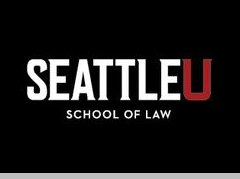Keywords
People's Republic of China, National Security, Privacy Rights, U.S. Privacy Law, January 6th, Fourth Amendment
Abstract
The aim of this article is to analyze and compare current events in the People's Republic of China and the United States to discuss the moral dilemmas that arise when establishing the boundary between national security interests and individual privacy rights. As we continue to intertwine our lives with technology, it has become increasingly important to establish clear privacy rights. The question then becomes: at what point should individuals sacrifice their rights for what the government considers the "greater good" of the country?
Further, this article analyzes the development of U.S. privacy law and its relationship to national security, technology, and politics. While both the U.S. and the PRC purport to value strong individual privacy laws, divisive events such as the January 6th attack on the U.S. Capitol and the Pro-democracy protests in Hong Kong put these protections to the test. In each instance, technology was used to hunt down protestors and charge them for anti-government behavior. And in each country, the government believed that their crackdown was justifiable. These issues will be broken down from multiple perspectives, including Fourth Amendment, modern U.S. case law, national security, and international perspectives.
Recommended Citation
Neary, Bryce
(2022)
"Tech and Authoritarianism: How the People’s Republic of China is Using Data to Control Hong Kong and Why The U.S. is Vulnerable,"
Seattle Journal of Technology, Environmental, & Innovation Law: Vol. 12:
Iss.
1, Article 5.
Available at:
https://digitalcommons.law.seattleu.edu/sjteil/vol12/iss1/5
Included in
Civil Rights and Discrimination Commons, Common Law Commons, Comparative and Foreign Law Commons, Constitutional Law Commons, Criminal Law Commons, Criminal Procedure Commons, Fourth Amendment Commons, Law and Politics Commons, Law and Society Commons, Legal Ethics and Professional Responsibility Commons, Legal History Commons, Legislation Commons, Military, War, and Peace Commons, National Security Law Commons, President/Executive Department Commons, Privacy Law Commons, Science and Technology Studies Commons, Social Justice Commons

